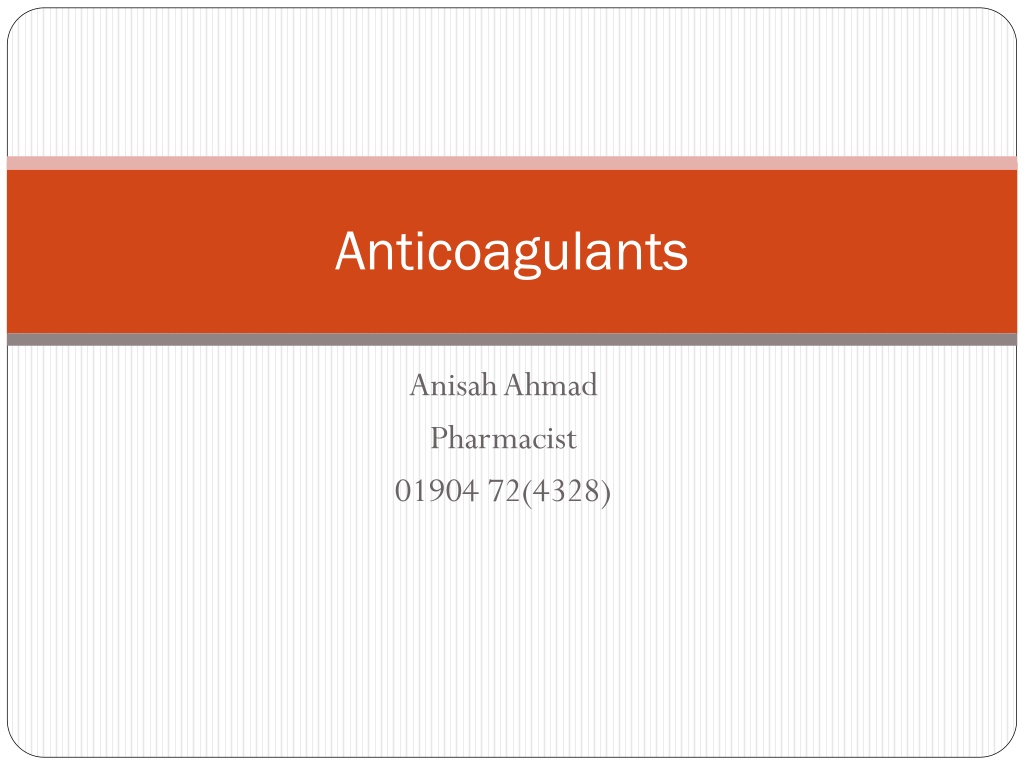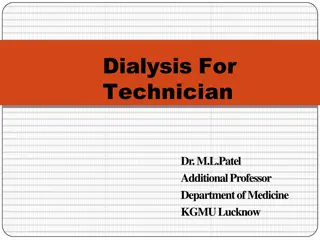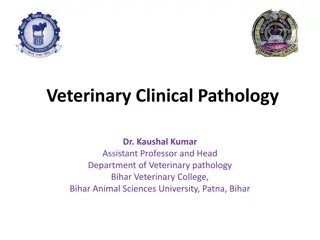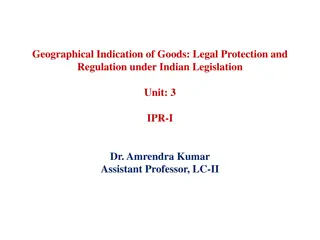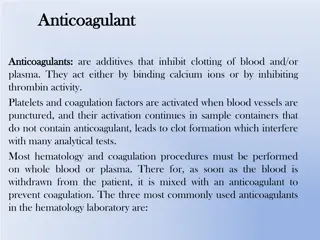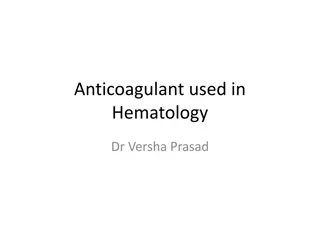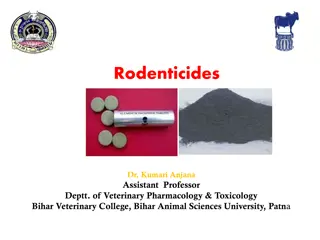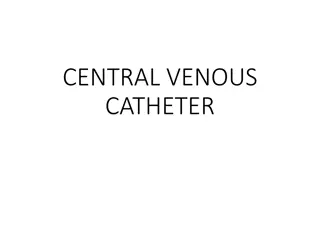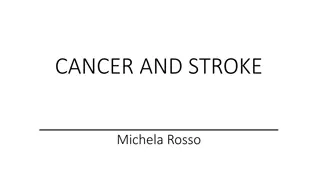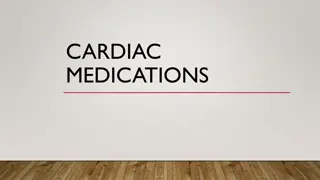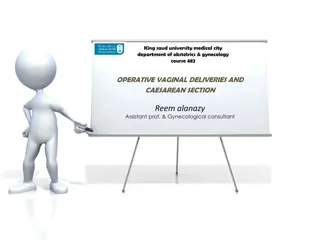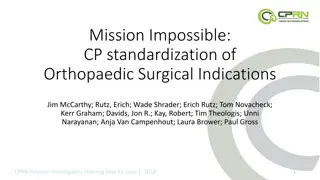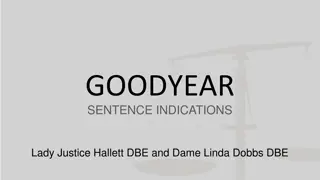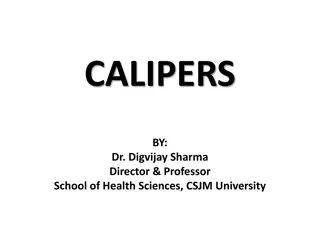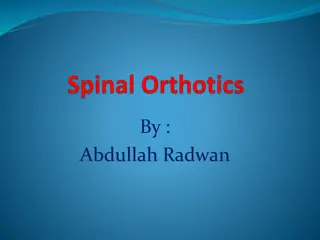Understanding Anticoagulants and Their Indications
Explore the world of anticoagulants through images, covering different types like warfarin and NOACs, their indications such as AF, DVT, and PE, monitoring in clinics, and specific drug details like apixaban, rivaroxaban, dabigatran, and edoxaban. Get insights into dosages, administration, and drug selection criteria in various clinical settings.
Uploaded on Oct 09, 2024 | 0 Views
Download Presentation

Please find below an Image/Link to download the presentation.
The content on the website is provided AS IS for your information and personal use only. It may not be sold, licensed, or shared on other websites without obtaining consent from the author. Download presentation by click this link. If you encounter any issues during the download, it is possible that the publisher has removed the file from their server.
E N D
Presentation Transcript
Anticoagulants Anisah Ahmad Pharmacist 01904 72(4328)
Warfarin Novel anticoagulants (NOAC) Anticoagulant clinic
UH Warfarin Warfarin UH LMWH Fondaparinux Rivaroxaban/apixaban/ edoxaban UH LMWH Dabigatran
Warfarin Indications AF DVT PE Aortic thrombus Valve replacement Post op VTE
Monitoring Anticoagulant clinic York & Selby patients Counselling Face to face/phone Range measured by INR Treatment dose LMWH cover TTR referred to GP Advice to HCP 01904 726785
NOACs Rivaroxaban 2008 Dabigatran 2008 Apixaban 2011 Edoxaban 2015
Indication AF DVT PE Post op hip & knee
Apixaban AF VTE 5mg BD 10mg BD - 7 days 5mg BD 2.5mg BD Match 2/3 criteria 80 60kg serum creatinine 1.5 mg/dL (133 micromole/L) Drug of choice AF, post op 2.5mg BD following 6 months treatment if VTE recurrent Post op 2.5mg BD 14-35 days
Rivaroxaban AF 20mg OM 15mg OM CrCl 15-50 mL/min ACS Aspirin / aspirin + clopidogrel 2.5mg BD Review 12 months VTE 15mg BD 21 days 20mg OM thereafter 20mg OM recurrent VTE Drug of choice Post op 10mg OM 12 days knee 35 days hip Can be crushed With meals
Dabigatran AF VTE 150mg BD 110mg BD 80 Verapamil LMWH 5 days 150mg BD 110mg BD 80 Verapamil Cannot be put into blister Manufacturers own Post op 220mg OM 150mg OM 75 CrCl 30-50mL/min amiodarone, verapamil or quinidine
Edoxaban AF VTE 60mg OM 30mg OM CrCl 15-50 mL/min 60kg Potent inhibitors ketoconazole, erythromycin 5 days LMWH 60mg OM 30mg OM See over 15mg dose available packs of 10
Counselling All patients counselled by pharmacist/MMT prior to discharge Post op patients nurses See crib sheet provided
Missed doses Short half life BD drugs ~6 hour window OD drugs ~12 hour window Increased risk; however it is important not to double dose Emphasise time critical Rivaroxaban if in first 3 weeks treatment BD dosing; can double dose. Take both tablets as soon as the patient remembers
ADR Bleeding nose, bowels, sub-conjunctival Sudden/severe headaches Unexplained bruising Rashes Heavier menstrual bleeding GI bleeds Alcohol Prolonged bleeding razor cuts Nausea Dizziness driving advice
Alcohol Enhances anticoagulant effect Rivaroxaban, edoxaban & dabigatran GI irritant 2-3 units per day for women (max 14/week) 3-4 units per day for men (max 21 units/week) Avoid binge drinking 2 alcohol free days per week
Reversal Dabigatran reversal agent Praxbind (idarucizumab) Reversal of bleeding managed same way Beriplex Prothrombin complex Vitamin K ineffective
Interactions NSAIDs topical & oral Antiplatelets under consultant advice only St John s Wort Potent inhibitors Amiodarone Macrolides may need dose reduction Verapamil may need dose reduction Inducers Rifampicin Anti-epileptics: Carbamazepine, phenytoin, phenobarbital
Pain management Paracetamol Codeine Morphine derivatives Avoid NSAIDs Including topical
Pregnancy/lactation Unsafe to use Seek urgent medical advice if pregnant No data regarding breastfeeding All manufacturers suggest avoid use NOAC Warfarin safe to use in breastfeeding
Surgery/Dentists Warfarin NOAC Low risk Procedure INR 4 Low risk Depends on RF Stop 24-36H prior High risk Stop 5 days prior Occasionally covered with LMWH High risk Depends on RF Stop 48-72H
Dabigatran Low risk GFR 80 24H GFR 50 79 36H GFR 30-49 48H High risk GFR 80 48H GFR 50-79 72H GFR 30-49 - 96H
Yellow card Rivaroxaban & edoxaban Encourage all patients/HCP to report for all NOACS Patients discharged with small yellow card with all anticoagulants
Stockings NICE guidance whilst symptomatic Class 2 EU/Class 3 British 23mmHg YTH - worn 2 years post DVT GP provide new stockings 2-3x year Not to buy OTC stockings Monitor condition leg regularly Changed daily Remove at night
Contraindications Peripheral arterial disease Bypass graft Cardiac failure Severe oedema Use with caution if ulcer or wound
Role community pharmacist NMS/MUR Adherence Interactions Alcohol cessation services OTC advice Stockings Advice on bleeding
Further advice Contact Anticoagulant clinic 01904 726785 Email
